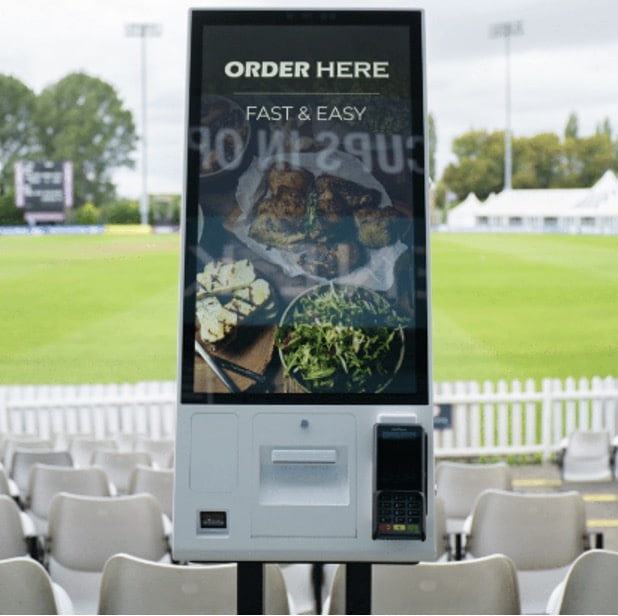Self-service kiosks present a dependable and intuitive solution for those aiming to enhance event experiences with greater efficiency. By providing quick access to services, these kiosks reduce wait times and enable user-driven interactions. This post outlines the workings of these kiosks, their benefits for business operations and customers, and their impact on the dynamics of large-scale events.

Self-service kiosks are user-friendly terminals commonly found at large stadium events, allowing attendees to navigate the venue, purchase tickets, order snacks, and even buy merchandise without requiring direct interaction with event staff.
Examples of Self-Service Kiosks
Self-service kiosks are flexible and multifaceted tools that enhance customer experiences across various industries. Here are a few examples where their impact is notably significant:

Self-service kiosks contribute to the accuracy of customer orders. Direct input by customers minimises the risk of errors or misunderstandings with traditional verbal orders, particularly for customised requests with specific preferences.
Customers’ direct entry of order details ensures that the final service aligns precisely with their expectations, thereby reducing the chances of errors that could arise from miscommunication with staff.
A significant number (47%) of self-serve kiosk users prefer self-service options that allow them to customise their meals. This underscores the importance of precise order fulfilment in enhancing the customer experience through technology-driven solutions.
Enhancing the customer’s purchasing experience, interactive kiosks effectively showcase additional menu items and suggest upgrades during the transaction, encouraging customers to consider higher-value choices. This strategy has proven successful, as evidenced by McDonald’s, which saw a 20% increase in unplanned beverage purchases due to kiosk prompts.
Equipped to handle multiple customers simultaneously, these interactive terminals significantly reduce wait times and positively influence customers to make further selections from a broader range of offerings. Such strategic use of kiosks can increase sales and indicates the effectiveness of incorporating self-service technology into a customer-focused business strategy.
Self-service kiosks are pivotal in enhancing customer experiences, especially with the growing mobile ordering trend. These kiosks allow customers to add to their orders placed via mobile apps.
At significant events, for instance, when food is pre-ordered for pickup at concession stands, customers can use a kiosk to include additional items seamlessly. The synergy between self-service kiosks and mobile ordering systems ensures a smooth and efficient customer journey.
Designed for speed, these kiosks send orders directly to the kitchen, streamlining the process from placing an order on a mobile device to when the kitchen begins preparation. This direct communication channel ensures that there is little to no wait time between order placement and the start of meal prep, enhancing overall service speed.
Designed with robust security in mind, these kiosks accept a variety of electronic payment options, including magnetic stripe, EMV chip cards, and NFC/contactless methods. Adhering to the highest industry standards, they maintain PCI certification and integrate SRED (Secure Reading Exchange of Data) technology to safeguard customer payment information.
Additionally, these kiosks are equipped with real-time monitoring and access control features. These capabilities are crucial for the immediate detection and handling of security issues, thereby reinforcing the protection of customer data privacy and ensuring a safe transaction environment.
Self-service kiosks significantly improve staff efficiency by addressing these factors:
With self-service kiosks handling order entry, staff members can concentrate on food preparation and other vital services. This strategic reallocation of responsibilities increases the production rate and effectively mitigates the impact of labour shortages.
Integrating self-service kiosks into commercial settings has been shown to significantly elevate the average order value (AOV). Data from QSR Magazine reveal that implementing such kiosks can lead to an increase in ticket sizes ranging from 15 to 30 per cent.
In today’s landscape, businesses and events that leverage modern technologies are more likely to succeed. The advantages of integrating self-service kiosks are clear:
The array of benefits underscores the strategic value of investing in self-service kiosks for businesses.